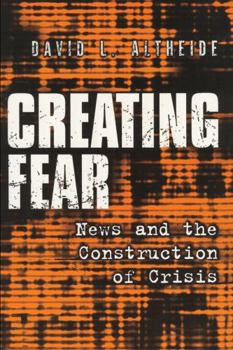Creating Fear: News and the Construction of Crisis
Select Format
Select Condition 
Book Overview
The creative use of fear by news media and social control organizations has produced a "discurse of fear" - the awareness and expection that danger and risk are lurking everywhere. Case studies illustrates how certain organizations and social institutions benefit from the explotation of such fear construction. One social impact is a manipulated public empathy: We now have more "victims" than at any time in our prior history. Another, more troubling resutl is the role we have ceded to law enforcement and punishment: we turn ever more readily to the state and formal control to protect us from what we fear. This book attempts through the marshalling of significant data to interrupt that vicious cycle of fear discourse. David Altheide employs a method, which he calls "tracking discourse", to map how the nature and the extent of the use of the word "fear" has changed since the 1980s; how the topics associated with fear, the topics of media discourse, have also changed over the same period (for example, the emphasis "moves" over time across AIDS, crime, immigrants, race, sexuality, schools, and children); and how certain news sources prevail over others, thus protectively insulating themselves from criticism of the premises of their discourse frames.
Format:Paperback
Language:English
ISBN:0202306607
ISBN13:9780202306605
Release Date:November 2017
Publisher:Routledge
Length:238 Pages
Weight:0.76 lbs.
Dimensions:0.6" x 6.3" x 8.7"
Customer Reviews
1 rating
A timely work
Published by Thriftbooks.com User , 18 years ago
It is so very pleasing to see the depth of scholarship invested in this work. David has skillfully avoided doing the same thing he criticises, and given us an amazingly detailed, thought-provoking and timely rejoinder to the current crisis in public information, and by corollary public policy development.






